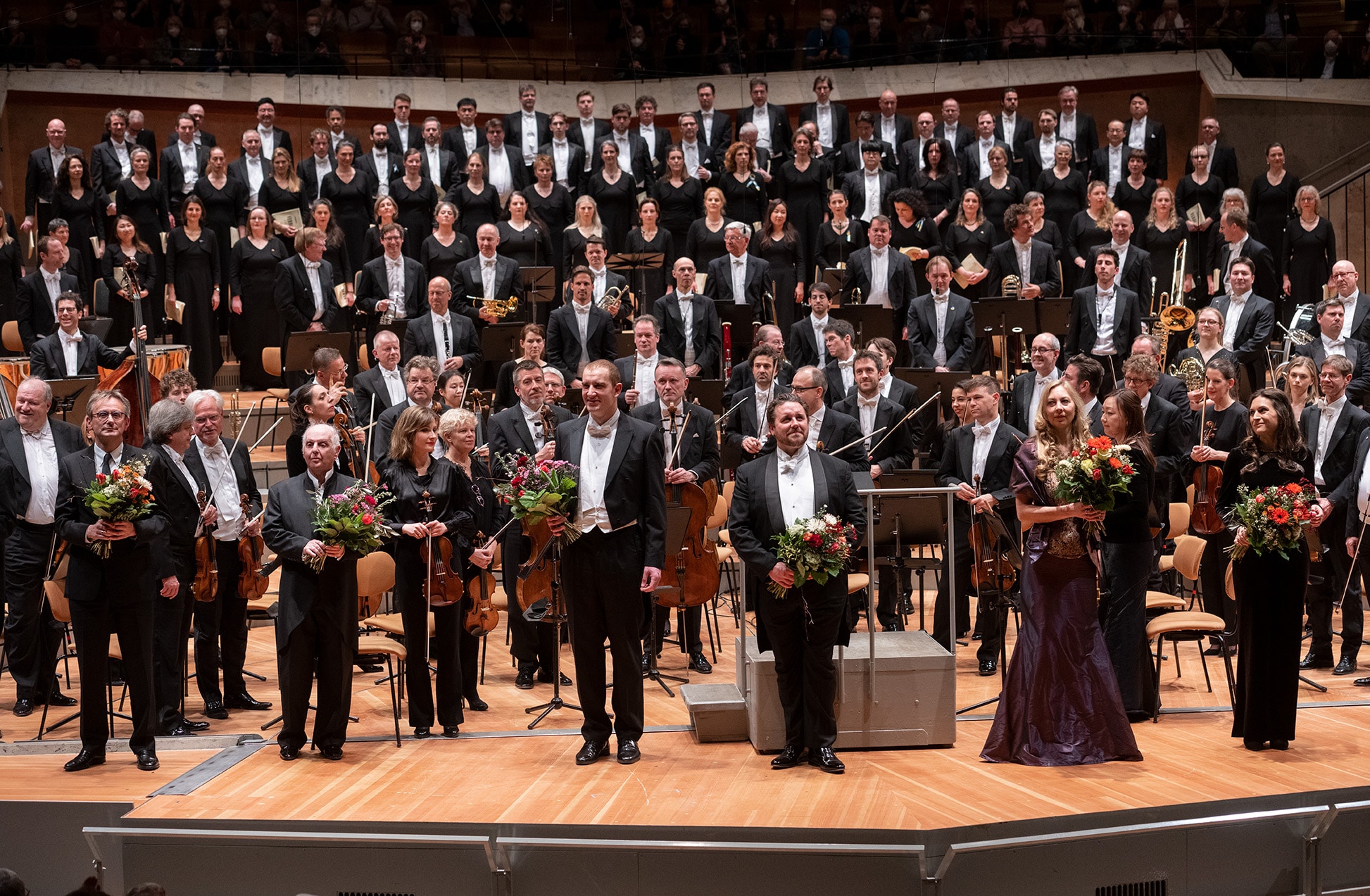How many musician jobs in German orchestras?
NewsThere are 129 state-funded orchestras.
The number of permanent positions rose slightly last year to from 9749 to 9,770.5, according to the industry body Unisono.
Some 765 permanent musicians are expected to retire in the next two years. Unisono expects that the gender balance will shift from just over 60-40 male-female to very near parity by 2026.






How many recent graduates of European, North American, and Asian conservatories will there be competing for those 765 positions?
0.5 means a part -time position ?
It would be interesting to know what the demographic distribution is based on nationality. As a foreign singer, who has been grateful to Germany for the opportunity granted to me, I am always astonished at how generous the German educational system is towards foreigners, both EU and non -EU citizens, in comparison to other countries. This also extends into the professional sphere, as a good half of my colleagues are not Germans. The food might not be thrilling, the humour certainly isn’t, but the German system still has much to be praised.
The food is good . Sausages, strudel.
Yes, there has been a large shift in the m/f ratios over the last 40 years, but a closer look shows there are still serious problems. The women are mostly in the tutti strings, they are also concentrated in lower paid orchestras, and there are very few women section leaders. Women also remain strongly underrepresented in the trumpet, trombone, and tuba sections. They also have a surprisingly poor representation among clarinetists.
In addition to the 129 orchestras, there are also 83 full time opera houses. It’s very different from the USA where there is only one full time opera house, the Met. And even it squeezes its whole season into seven months since so many wealthy patrons leave the sweltering, stinking city during the summer.
San Francisco and Chicago have half year seasons.
I’m told they plan it just long enough for the musicians to be able to collect unemployment. (The now defunct NYCO and the NYC Ballet did the same thing.)
Washington and LA have opera houses, but the number of performances equals about a 6 week season. Most opera companies in the USA work with pickup musicians in rental facilities and only do a tiny number of performance per year. Houston refers to itself as a “Grand Opera” but its orchestra has a laughable 40 or so regular orchestra musicians, about the same number as a provincial European house like in Pforzheim, Germany.
The strangest part is how the US opera world puts on a façade like these absurdities don’t exist. Schools like Indiana University and Juilliard crank out highly gifted, excellently trained singers on a conveyor belt into a country that will just neglect them. (These schools do nothing about this as long as they can bleed the students for tuition.) Many go to Germany seeking work where they live in miserable poverty while fighting the uphill battle of trying to get a job as a foreigner. Most fail and return to the States to do something else. It’s an injustice and cultural loss that screams to the heavens.
In science and technology, the flow is in the opposite direction, since Europe is now no more than a burned-out hulk.
Anyway, it’s nice to have Mr. Osborne confirm what’s long been unsaid. The purpose of public funding of the arts in the US is not to fill a public need that can’t otherwise be satisfied, it’s to provide jobs to otherwise unemployed students irresponsibly pumped out by schools.
Can confirm, in science & tech it is very much a mirror image. Germany produces many science PhDs, but they have themselves become a scientific backwater, and their brightest often flee for the Anglosphere.
Those highly gifted musicians are welcome to come to Europe for employment, where the social climate is (still) much more high-culture friendly than in the U.S. 🙂
One has to have a lot of money to be able to fly to Europe and take auditions, particularly if you have a large instrument. At least we now have the information of when auditions are happening, unlike in the past. But Britain requires work permits, at least for teaching.
Just curious…does anyone know how many administrative staff people are employed by these orchestras?
For example, the hr-sinfonieorchester website lists 17 in the management team (including one trainee, and one who is also in the orchestra), 110 orchestral members. That seems reasonable, given that running a full-time professional orchestra (and its Orchesterakademie) is a complex operation.
To answer your question: 21 women and 5 men in the Strasbourg Philharmonic:
https://philharmonique.strasbourg.eu/equipe-administrative-et-technique
A bit unbalanced, no?
It’s really amazing to read this. A quick glance shows the entire German state budget for everything is about 400 billion, roughly half of what we here in the USA spend on just the defense department.
On the other end, the entirety of the American National endowment for the arts is about $150 million…less than fifty cents per capita.
The really telling figure is that we have TWO publicly financed musicians here: the civic organists in Portland Maine and the Spreckels organ in Balboa Park San Diego. Last time I checked both jobs were held by Brits. Whereas Germany has 10,000 musicians paid for by the govt.